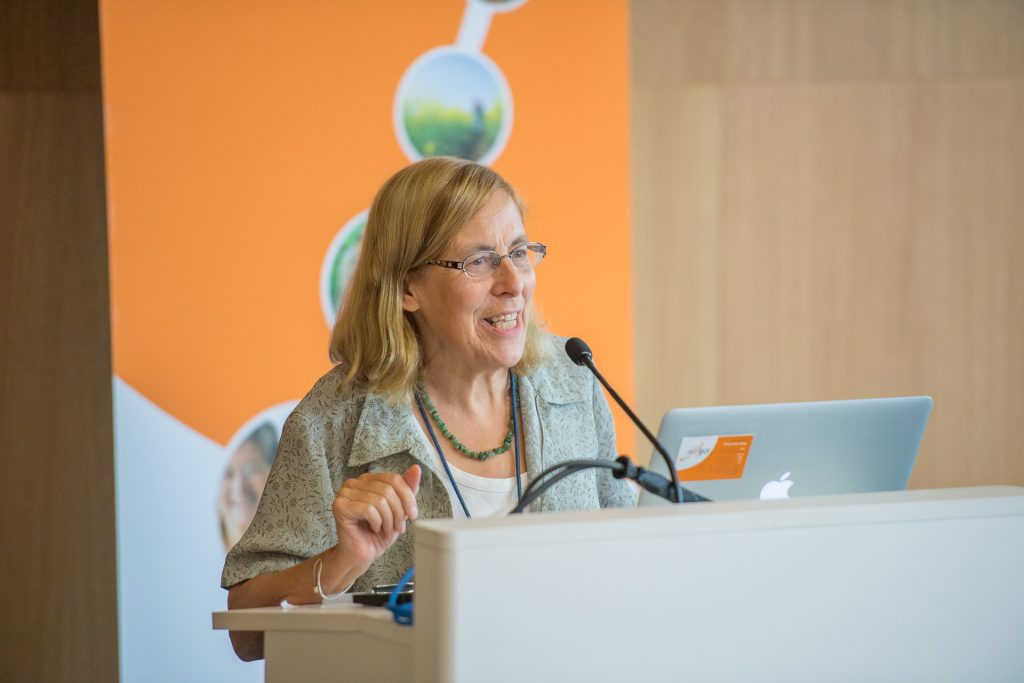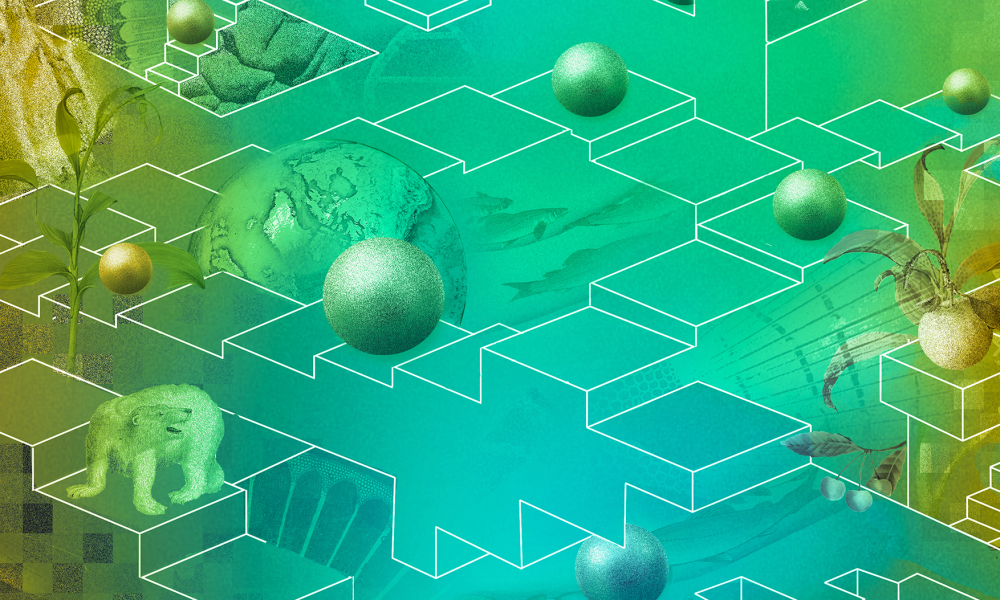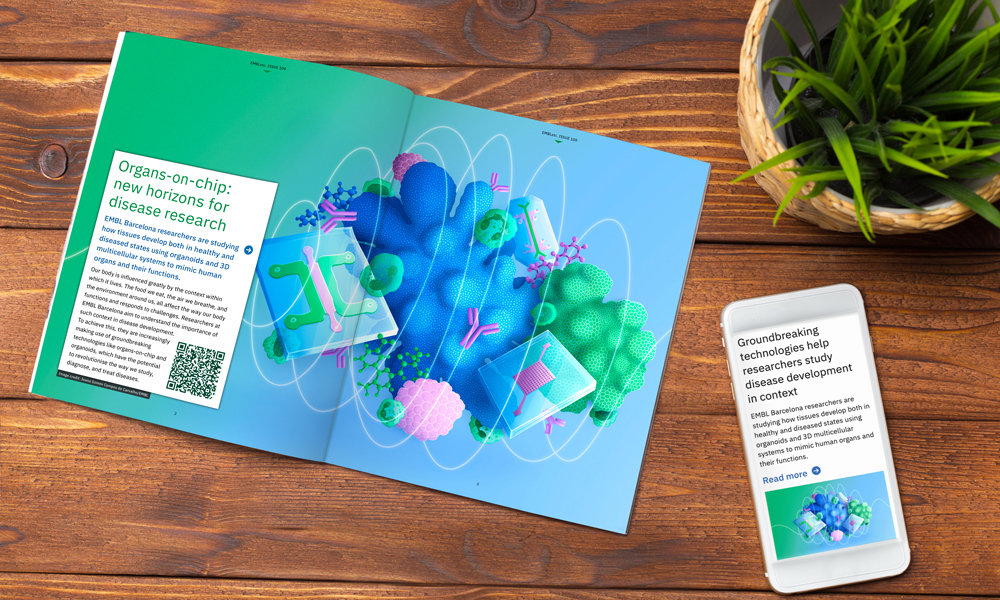
Janet Thornton retires: a pioneer in structural bioinformatics
In recognition of Janet Thornton’s retirement, we look back at some of her biggest accomplishments in shaping the field of bioinformatics.
Issue 100
EMBL’s upcoming Science & Society conference sets the stage for a deep dive into the ethical considerations surrounding the use of technology and organoids in life science research, as well as other ethics-related questions of importance.

Science, technology, and ethics have always been closely intertwined concepts. Science allows systematic investigation of nature. Technology applies the knowledge so gained for human benefit. And ethics provides governing principles for moral conduct. Advances in science and technology often demand a reexamination of the associated ethical standards, while changes in our collective ethical consciousness can affect our approach towards scientific research and its applications.
The ethics surrounding scientific research, therefore, form part of the bedrock of modern research endeavours and ensure that the highest standards are maintained as we extend the frontiers of human knowledge.
Recognising the importance of this field, particularly in the context of current global concerns and challenges, EMBL’s next Science & Society conference will examine the breadth of ethical issues in the life sciences through the lens of molecular biology research. The conference, titled ‘Terra Incognita’, will be held virtually on 19 and 20 June 2023 and will feature a dazzling array of speakers from a wide range of backgrounds.
“The Science & Society Programme helps create a platform for dialogue and debate,” said Lucia von Bredow, EMBL Bioethics Manager and Science & Society Lead. “It’s a collaborative initiative, within which we try to facilitate an exploration of the societal context in which scientific research operates.”
As one of the previous attendees, Chris Dye from the University of Oxford, stated: “The excellent EMBL Science & Society conferences are a terrific opportunity for scientists at all career stages, and from anywhere in the world, to join wide-ranging debates on the practical, ethical, and social implications of today’s research.”
EMBL’s Bioethics Office provides the organisation with guidance on ethical issues arising in research, coordinates training via the Ethics Academy, and delivers an external engagement programme on the ethical, legal, and social implications of EMBL’s research via Science & Society.
There are many ways to approach ethics in scientific research. For example, the Ethics Academy at EMBL categorises ethics-related training into three major areas. The first is bioethics – standards that apply to the usage of biological material, involving environmental, biosafety, and biosecurity aspects, among others. Second, there is data ethics, which deals with the ethics of emerging technologies, data protection, and records management. And finally, there’s workplace ethics, which deals with institutional culture; equality, diversity, and inclusion; and research integrity.
In order to navigate this vast field, the Terra Incognita conference takes an innovative approach, by distilling these concepts down using two specific case studies. The first case study deals with technology ethics, and will be kicked off with a keynote address by Sandra Wachter, Professor of Technology and Regulation at the Oxford Internet Institute at the University of Oxford. Wachter’s research deals with the legal and ethical implications of AI, Big Data, and robotics as well as Internet and platform regulation.
With the recent popularity and rise in the use of generative AI like ChatGPT, this session will come at an opportune time to reexamine the ethical concerns related to the usage of such technology. This session also includes talks by science historian Mathew Cobb from the University of Manchester, EMBL group leader Jan Korbel, and Nikola Biller-Andorno, Professor and Director of the Institute of Biomedical Ethics of the University of Zurich, Switzerland.
The second case study will deal with the ethics surrounding the use of organoid systems to aid research in molecular biology. EMBL is a leader in this field, particularly with several groups based in EMBL Barcelona pushing the boundaries of organ-on-chip and microphysiological system research. The session will present different perspectives on organoid use ethics, beginning with a keynote address from Insoo Hyun, Director of Research Ethics at the Harvard Medical School, USA. It will also feature talks by EMBL Barcelona group leader Talya Dayton, Fruzsina Molnár-Gábor from the BioQuant Zentrum, Germany, and Madeline Lancaster from the MRC Laboratory of Molecular Biology, UK.
“Organoid and embryo modelling research represent two rapidly moving areas of science, where the ethical and policy issues are unfolding in real-time alongside the science. It is therefore crucial that conversations among policymakers and ethicists occur proactively with researchers who are at the cutting edge of such work,” said Insoo Hyun.
In addition to the case studies, the conference will feature discussions on ways to involve the public in discussions about ethics and science. This session will be led by a keynote address from Richard Milne, Deputy Director of the Kavli Centre for Ethics, Science, and the Public, University of Cambridge, UK, and will feature a roundtable on scientists’ role in ethics-related discussions, as well as a debate on better involvement of underrepresented groups in the discussion of ethics.
“The ethics of research in genomics and the life sciences is hugely important – it affects not only how we do science, but why and for whom,” said Milne. “It’s also important that this isn’t just left to ethicists and social scientists alone, but that we all work together as part of a multidisciplinary community.”
“As Europe’s unique intergovernmental life sciences research organisation, a consideration of ethical issues in scientific research is of key importance,” said EMBL Director General Edith Heard. “It is also essential for our mission to integrate and support the life sciences across Europe.”
Lucia von Bredow agrees. “It is not only essential for EMBL to play a leading role in discussions around ethics, but it is also important for us to set the bar high, and strive to meet the standards for the highest quality ethical research. It is our aim that EMBL serves as a model of best practice for research ethics in a European context, and this conference is one of many steps in our road towards achieving that goal.”
The conference is free to attend and open to everyone. Registrations are now open until 16 June 2023. Find more information here.

In recognition of Janet Thornton’s retirement, we look back at some of her biggest accomplishments in shaping the field of bioinformatics.

Veli Vural Uslu, winner of the 2023 John Kendrew award, chats about his journey in science and his adventures in science communication. Uslu is the writer, director, and organiser of various science-themed theatre plays, and the founder of TAP (The Awesome Potatoes) Science Theater Heidelberg.

Click here to download a quick overview of all the articles included in this digital issue of EMBLetc.